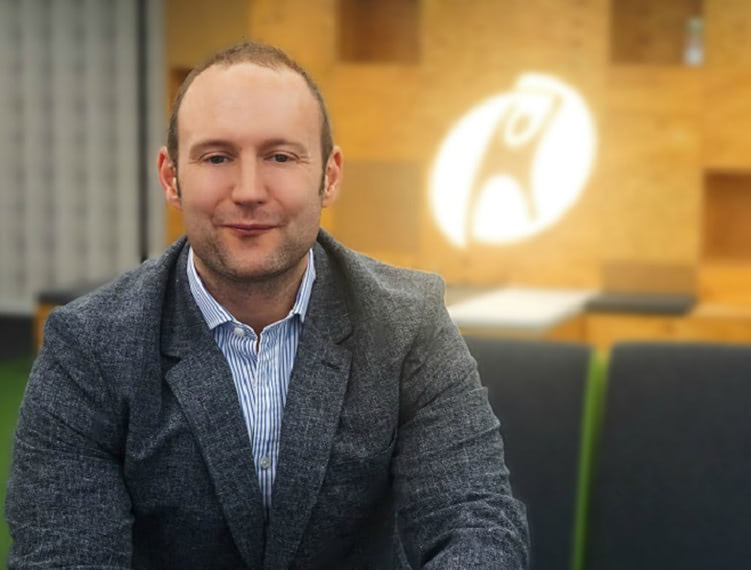Bridging the tech skills gap with engagement and empowerment

The technology skills gap in the UK is well documented and the impact is clear to see, with a report by the Edge Foundation revealing a failure to close the gap could cost the UK economy £63 billion a year.
It was encouraging to see a rise in overall science and computing entries in this year’s GCSE results, but given the gravity of the skills crisis, we need a significant and systemic approach to rethinking the way we address the problem.
This approach needs to be a collective effort across:
- Industry
- Government, and
- Education providers
The UK technology industry, which is facing an estimated 600,000 job vacancies, has a particular role to play in engaging, empowering, and encouraging young people to consider careers in STEM.
Rackspace is doing its part on this front, working with local schools to help students see the possibilities of technology careers.
These industry-driven initiatives are crucial to addressing the technology skills gap for a number of reasons.
The need for an education piece on STEM
Previously, those who studied computing would typically enter into careers as IT technicians or coders but that’s no longer the case. Computer science as a traditional subject matter may have been highly theoretical, but it’s now become intertwined with everything we do as every job function becomes increasingly analytics driven.
There is an education piece in terms of helping today and tomorrow’s students understand the range of careers open to them if they undertake STEM qualifications – a range much broader than just IT or mathematics.
Today’s generation of young people have utilized technology in every aspect of their lives. This is a great basis for educating students on STEM career opportunities as they can already understand how technology underpins how we live, work, and play.
As part of an ongoing programme with King’s College School to support the school’s drive to encourage students to undertake computer science, Rackspace recently welcomed 40 Year 10 students to its offices to participate in a half-day programme.
Students took part in workshops with Rackspace employees from across the business, who shared details about the range of opportunities available. Through Rackspace’s work with King’s College School, the institution reported that the number of students choosing GCSE computer science doubled, which shows the value in students hearing directly from – and interacting with – industry professionals.
Make learning relevant and practical
Theoretical learning isn’t enough to engage every student – many need to be taught in a context that’s relevant to them. Rackspace’s work with local schools has a particular focus on taking computing out of the theoretical realm and giving students hands-on experience in a context relevant to them.
Education institutions and employers need to work together to provide students with the necessary insights to make informed decisions about their future careers. This is clearly demonstrated by the Gatsby Career Benchmarks, which stipulate the government’s strategy for careers guidance in schools. The benchmarks include offering encounters with employers and experiences with workplaces.
Rackspace has embraced collaborations with educational institutions. For example, Harlington School’s sixth form recently visited Rackspace’s offices for an immersive tour of cloud computing through interactive presentations and workshops. As part of this, the students built their own servers and cloud environments for online games using traditional hardware and cloud infrastructure.
Technical topics like big data and cloud computing were brought alive for the students through relevant enterprise use cases, including Facebook, Snapchat, and the Fortnite game. Harlington School attributed the increased number of females taking IT to A-Level directly to Rackspace’s ongoing relationship with the school.
With the British Heart Foundation, Rackspace has also supported a STEM day at Kent College Pembury to educate Primary school children how to code. The initiative was launched through Rackspace’s POWER organisation (which promotes inclusivity and balance in the workplace) and Rack Gives Back charitable organisation that donates 100 hours of employee time each year to teach children to code.
STEM the tide of the skills gap by creating opportunities
The explosion of digital transformation means there’s an increasingly diverse range of career opportunities for those with STEM qualifications. Studying engineering doesn’t mean you have to be an engineer and likewise, studying computing won’t necessarily lead only to a career as an IT technician. Graphic design, for instance, now commonly involves website and application development, while even those in the police force work in the cybercrime realm.
With the technology industry so clearly affected by the skills gap, we must take an active role in addressing the root of the problem and engage students in STEM from day one. This means promoting how a solid STEM skillset will help young people succeed in whichever career path they aspire to – across every industry and in every business. Experience is so important to today’s generation, with many students seeking out work experience opportunities before they graduate. The onus should be on the industry to create as many opportunities for this as possible.
Lee James, CTO, EMEA at Rackspace

Responses